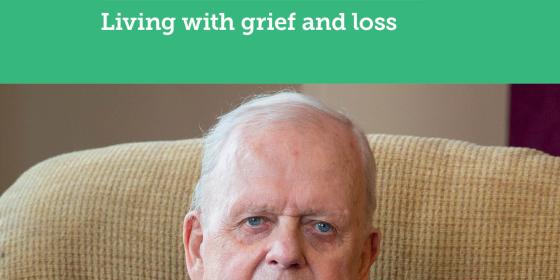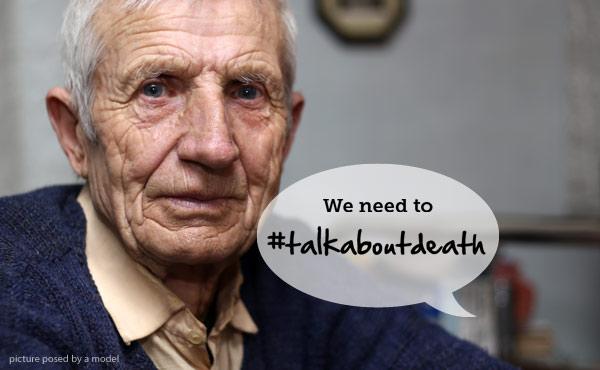
My wife died three years ago. We’d been married for 57 years. I thought we would make it to 60.
When Sheila was 70 she lost the ability to speak and was diagnosed with Fronto Temporal Dementia. While I cared for her at home for six years, my health gradually deteriorated, resulting in the need for a short hospital admission for a minor operation.
I arranged for her to stay for two weeks in a care home and she was quite happy there. Even though it was always my intention that she’d come back home after my health had improved, one of my sons suggested she stay there permanently as it would relieve me.
We had a routine that I would visit Sheila every day and she would throw her arms out for a cuddle. Some of the staff also tried this and it was interesting that she’d only respond to one or two.
I subsequently became friends with the manager of the home, the staff, and the residents and their family members.
When she died, I was by her side and we were supported by the wonderful care home team.
Looking back, when I was caring for Sheila I was inward looking, doing the shopping and household jobs and not participating much with the outside world.
When she moved into the care home I realised that I’d lost confidence in myself. I struggled with ticket machines on the Underground and escalators that run so fast now. I felt aghast at the way that Underground stations that used to be a single platform are now a shopping mall.
After she died I remember saying to one of the staff that I was worried I hadn’t gone through the grieving process. She told me that I’d done my grieving in the years I’d been coming there. She explained, “You’ve been reconciled to her dying during this time.”
Looking forward
In Sheila’s last weeks, one of her carers told me I ought to start thinking about how I was going to occupy myself when she finally died. She said, ‘You’ve been coming here for six or seven days every week. You’ll have to find something to do.’
I ended up volunteering, working with people who are housebound, and I find this tremendously satisfying. I use the skills I learned when looking after Sheila - how to help those with disabilities and how to deal with people with dementia; how to answer their questions and give them reassurance.
I regained my confidence through volunteering. I’ve found, too, that there are benefits to being by myself.
If I don’t feel well and don’t feel like getting up, I don’t. I can turn over and stay in bed until I feel better.
If I don’t feel well and don’t feel like getting up, I don’t. I can turn over and stay in bed until I feel better.
Having said that, I try to lead a regular life. I always do the shopping on a Saturday afternoon and the washing on a Monday. That’s how it was always done in our house. Doing regular things on certain days keeps me ordered and lifts a sense of just drifting along.
I try to go to a museum or gallery once a week and to a lunch with retired colleagues once a month. I’ve built up a way to live in a way that suits me.
Preparing my sons
Because of what happened to Sheila I accept that this might happen to me: that one day I won’t be able to look after myself and will have to go into a home. I’ve given my sons Powers of Attorney over my affairs so that they can make decisions on my behalf if this is necessary.
Sheila’s death also taught me how much there is to do when someone dies. I’ve written a detailed three-page document of things they’ll have to do after I’ve died.
For instance, I’ve explained about the green form you need from the doctor who certifies my death, the other documents (and where to find them in the house) that will be needed by the registrar.
I’ve made sure my sons know where financial documents, bank accounts and passwords are. I’ve tried to get rid of a lot of paper work so they won’t need to do this and I’m a regular at donating things to local charity shops.
My wife and I had a lot of photos and, during those dark evenings when she was in the care home, I wrote information on the back of each one - where the photo was taken - and mounted them in albums. I’ve tried hard to make it easy for them.
You can read our guide Coping with bereavement for more information on help that’s available.
For free advice, information and support, visit www.independentage.org/TalkAboutDeath
